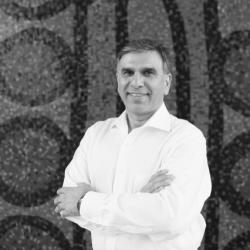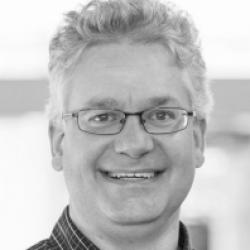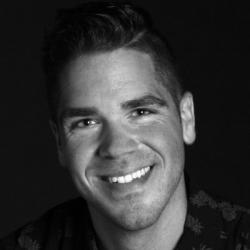A conversation between SFU researchers, students, and the City of Burnaby as they discuss and design innovative climate change solutions in a COVID-19 reality.
The Climate Solutions Innovation Series is hosted by the Pacific Institute for Climate Solutions (PICS), and Simon Fraser University (SFU)’s Sustainability Office and Office of Community Engagement.
In each webinar, researchers will engage in 10-minute pitches followed by a pitch from a local climate solution-seeker. There will be time after the pitches for all participants to engage and ask questions.
In addition, a brief presentation on the new PICS collaborative research program and its current funding opportunity will help frame the discussion on targeting new collaborations in pursuit of high-impact climate solutions.
Watch recordings of the below events here.
WEBINAR 1: Building more sustainable and resilient cities: new opportunities for innovative solutions
Tuesday June 23, 2020
Green Solutions to Build Cities Resilient to Climate Change and Pandemics
Speaker: Dr. Zafar Adeel, Executive Director, Pacific Water Research Centre, Professor of Professional Practice, School of Resource and Environmental Management, SFU
Some researchers suggest that the social, economic, and environmental impacts of the current pandemic gives us an early indication of the potential climate-change impacts in the near-future. Canadian cities must be at the forefront of offering innovative solutions to adversity whether it comes from pandemics or climate change. Effectively managing safe water services – freshwater, stormwater, and sewerage management – in crisis situations is an essential component of resilient urban communities. Ongoing work in many Canadian cities must incorporate innovative, nature-based infrastructure solutions that can cope with adversity, while providing green and sustainable jobs.
Charting a sustainable path out of lockdown?
Speaker: Dr. Taco Niet, Assistant Professor of Professional Practice at the School of Sustainable Energy Engineering at SFU
The COVID-19 pandemic has shown that it is possible to address significant challenges as a society and that people are willing to make drastic changes to support their fellow citizens. As we emerge from lockdown we continue to face the climate crisis and we stand at a crossroads – how do we spend stimulus funds and create a shift to a cleaner and greener society as we emerge from COVID-19?
Coming out of COVID-19: how local government climate action can create jobs and build resilient communities
Speaker: Maya Chorobik, Senior Community Energy Manager, Community Energy Association
Given where we are now and which sectors and individuals have been impacted most, we have the opportunity to choose a stimulus strategy that builds in economic, health, and climate benefits. Maya will discuss the role of local governments in supporting economic recovery by leveraging climate action for job creation, community resilience, and other goals.
WEBINAR 2: Developing greener transportation systems in light of COVID-19
Wednesday June 24, 2020
Pedalling Toward Recovery
Speaker: Moreno Zanotto, Research Coordinator, Cities, Health and Active Transportation Research Lab, SFU
The prevailing COVID-19 pandemic has caused a sharp decline in transit ridership, partially due to physical distancing concerns. Whether transit riders switch to driving or cycling will depend upon how cities respond to this challenge. We will discuss the current state of cycling in Burnaby, key strategies to support active transportation, and the implications for sustainable mobility planning.
Supporting sustainable transport policy post-Covid 19
Speaker: Zoe Long
Public support for climate policies is often considered essential for their successful implementation, and public opposition may prevent governments from implementing strong climate policies, such as with the case of carbon taxation in most jurisdictions. I present results and implications from a survey of Canadian citizens on their awareness, support, and opposition towards three key transport policies considered essential to meeting 2050 climate mitigation goals.
A New Transportation Plan for Burnaby
Speaker: Renée de St. Croix
Renée de St. Croix has been a city planner, urban designer, and urbanist for over 15 years and is passionate about building better cities for people. She is Senior Planner with the City of Burnaby, BC and is currently the project manager for the new Burnaby Transportation Plan. She is also responsible for major city-wide policy initiatives, community plans, and other special projects for the City. Prior to joining the City, Renée was a planning consultant working in multiple cities across Canada and the United States.
Accessibility
If you have any questions, concerns, or comments regarding this event’s accessibility, feel free to connect with tara_flynn@sfu.ca. If you require ASL or other language interpretation please submit this request asap and all possible attempts will be made to accommodate.
Simon Fraser University acknowledges the unceded Traditional Coast Salish Lands of Burnaby, Surrey and Vancouver including the Tsleil-Waututh (səl̓ilw̓ətaʔɬ), Kwikwetlem (kʷikʷəƛ̓əm), Squamish (Sḵwx̱wú7mesh Úxwumixw) Musqueam (xʷməθkʷəy̓əm), Semiahmoo, Katzie, Kwikwetlem (kʷikʷəƛ̓əm), Kwantlen, Qayqayt, and Tsawwassen First Nations.
Speakers

Dr. Zafar Adeel
Dr. Zafar Adeel serves as the Executive Director of the Pacific Water Research Centre, and as Professor of Professional Practice at the School of Resources and Environmental Management at Simon Fraser University. He has over 25 years of experience in a broad range of environmental science and policy issues. This includes 18 years of work as a United Nations official, with progressively increasing responsibilities in the field of international development and research. He served as the Director, United Nations University Institute for Water, Environment and Health (UNU-INWEH) from 2006 to 2016. He also served in a number of international leadership roles: These include chairing a group of over 65 organizations called UN-Water during 2010-2012, and co-chairing the Millennium Ecosystem Assessment team that produced the global desertification synthesis in 2005. Dr. Adeel led the development of a south-south network of scientists working in water-scarce countries, particularly focused on Africa, Middle East and Asia. Through his editorial lead, this network has published eight books in the UNU Desertification Series. Presently, he is the Series Editor for a book series by Springer: “Water Security in a New World.”

Dr. Taco Niet
Taco Niet’s research focuses on energy-systems modelling and the system challenges related to sustainable development, such as the integration of wind, solar and storage. He has taught mechanical engineering at BCIT since 2003 and contributes to the United Nations Department of Economic and Social Affairs’ (UN DESA) initiative to build energy modelling capabilities in emerging economies.
“The current transitions in the energy system, including the addition of variable renewables and the uptake of electric vehicles, is changing the way the system operates, making this an exciting field to be working in. I look forward to helping students see how energy-system interconnections impact their lives and those of others around the world.”

Maya Chorobik
Maya Chorobik is a Senior Community Energy Manager with the Community Energy Association (CEA). Maya supports local governments with climate action planning and project implementation, as well as education and capacity building for staff and elected officials. One of Maya’s areas of focus is coordinating BC Climate Leaders, a multi-year program to engage and activate locally elected officials on high impact climate action through resources such as the Climate Leaders Playbook, peer learning events and coaching. This program is especially relevant to communities that have declared climate emergencies and are ready to take bold action.

Moreno Zanotto
Moreno is a graduate of SFU’s Faculty of Health Sciences, where he completed his thesis research on the Vancouver public bike share system. Today, Moreno coordinates the training of personnel and the logistics of data collection for a variety of public health intervention research studies that contribute to the design of healthier cities.
Moreno lives in beautiful Metro Vancouver and cycles for most trips using his e-bike. He is active with the cycling advocacy community working to turn research evidence into practice by making the case for higher quality cycling infrastructure and safer streets.

Zoe Long
Zoe serves as Research Manager for SFU’s Sustainable Transportation Action Research Team (START). Zoe’s research focuses on consumer demand and market potential for low-carbon transportation technologies. As in interdisciplinary researchers, she is interested in how incorporating consumers’ perspective into transport models can inform policy aimed at reducing greenhouse gas emissions from transportation.

Renée de St. Croix
Renée de St. Croix has been a city planner, urban designer, and urbanist for over 15 years and is passionate about building better cities for people. She is Senior Planner with the City of Burnaby, BC and is currently the project manager for the new Burnaby Transportation Plan. She is also responsible for major city-wide policy initiatives, community plans, and other special projects for the City. Prior to joining the City, Renée was a planning consultant working in multiple cities across Canada and the United States.